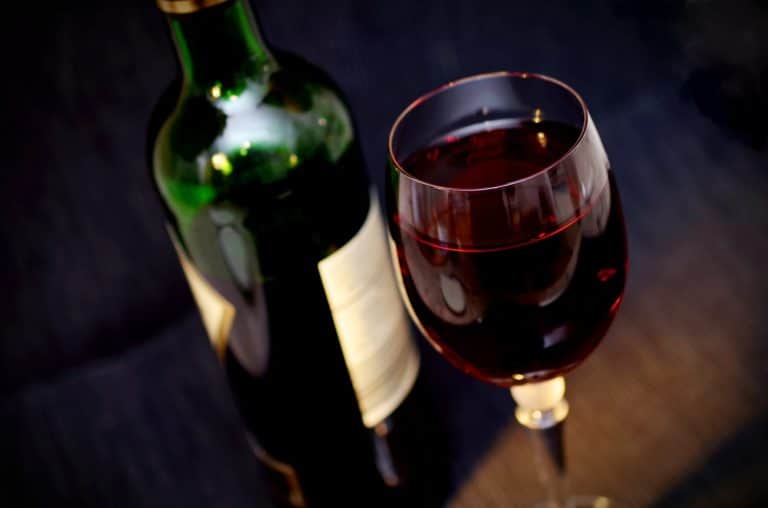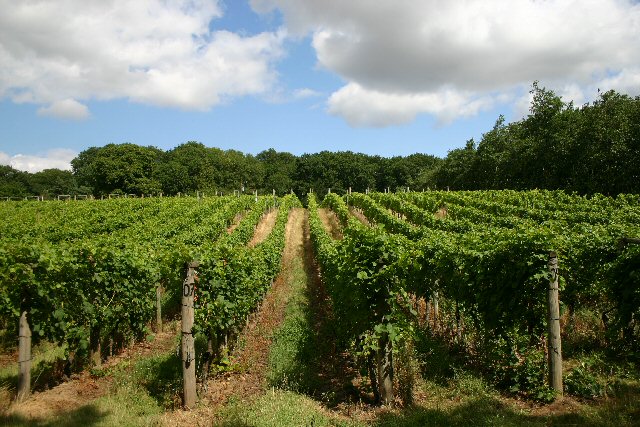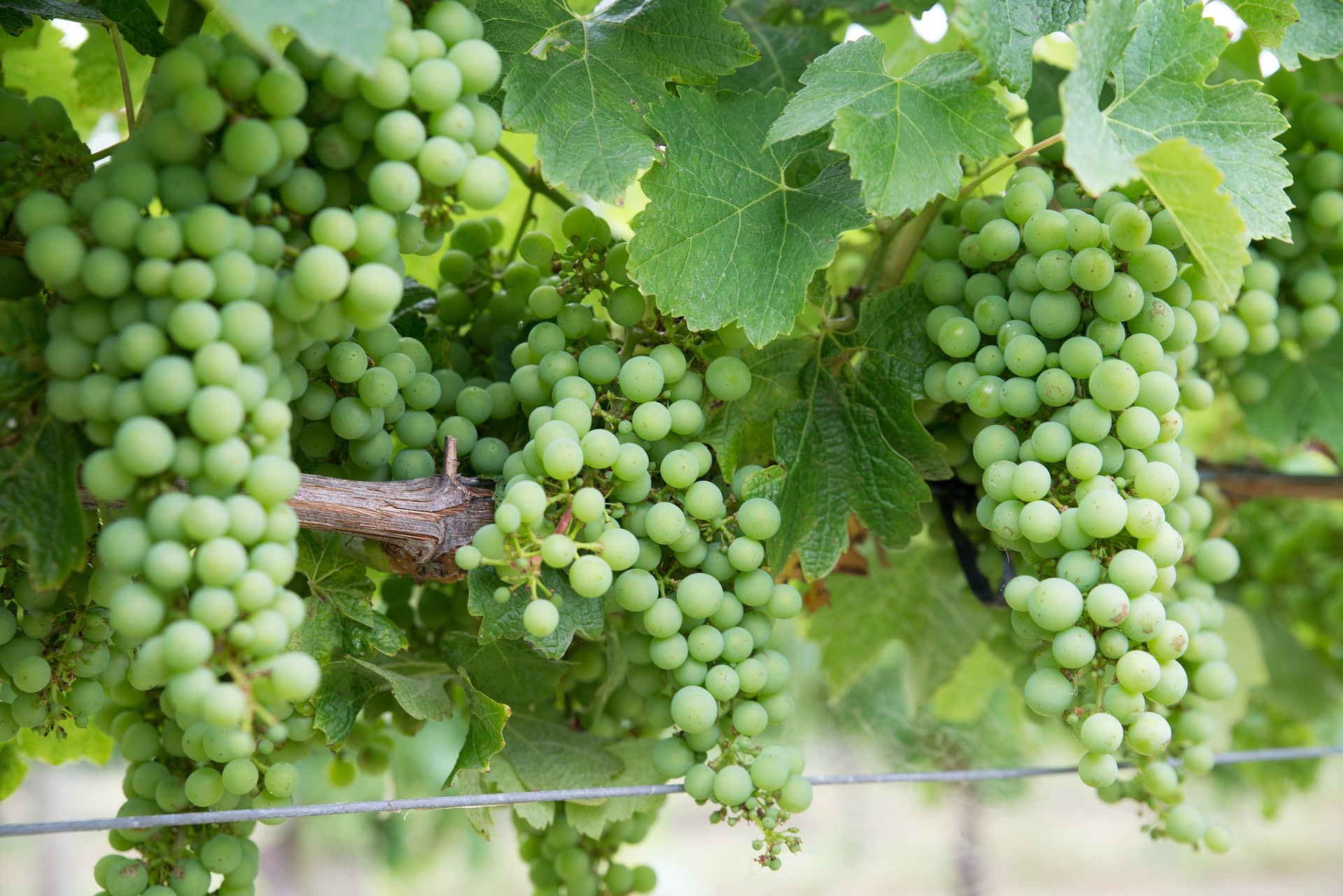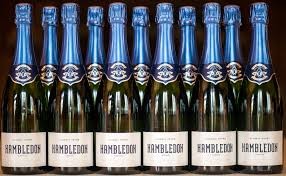
You may be forgiven for laughing at the oxymoron of the title but times are changing and English wine is becoming a force to be reckoned with. The wine business is plagued with old fashioned snobbery, and admittedly England has a long way to go to compete with France in the wine stakes, but watch out, the English are rolling out the barrel!
The English for decades have been prolific consumers of wine, ranked in the top ten worldwide but have not been known for wine production. There have been vineyards in England for centuries, since the Romans, but it is only in the past 40 years that any of these vineyards have been commercially viable with a product that is actually drinkable. I remember back in the 1990’s we had an English wine on the hotel wine list from the Denbies Estate in Surrey. We held two bottles in stock and would occasionally sell one.

Bob Jones / Vineyard at Wyken Hall / CC BY-SA 2.0
At this point I should point out exactly what is English wine as opposed to British Wine. English wine by law must be produced in England from grapes grown in England – similar rules apply to Welsh wine. But British wine is a cheap, nasty product that for years has given the English wine industry a bad name. British wine is mass produced in a factory from grape concentrate, or juice, that has been imported and bears no resemblance to something that someone has taken time and care to nurture.
So why now is English wine on the rise? The first reason surely is climate. It is often said that the English are obsessed with the weather and that it constantly rains in England. This is only partly true these days – yes we do talk about the weather and yes it does rain a lot. But global warming has given an opportunity for some fantastic grapes to be grown at higher latitudes.
The south coast of England now enjoys a milder climate, still with plenty of rain but also a good deal of sunshine. The second reason is that the soil is also conducive to the growing of vines which produce the best fruit when they are struggling. Along the south coast there are plenty of chalk cliffs which just happens to be a favourite for Chardonnay and Pinot Noir grapes.

The English have long had a reputation of being slightly eccentric and it was this eccentricity that most likely propelled the early winemakers in England. After the second world war a number of “pioneers” started planting vines in the south of England. Several amateur growers were producing wine on a very small scale mainly as a hobby.
I remember my grandfather having a plot of vines on his south facing slope in Wiltshire and building his own grape press – I think he probably came under the eccentric heading! But one of the more professional pioneers was Major General Sir Guy Salisbury-Jones who started a vineyard in Hampshire in 1952 and became the first person to commercialise English wine since before the First World War. Today Hambledon is the oldest commercial vineyard in Britain and produces an excellent quality sparkling wine.
Today English winemakers are getting a worldwide reputation for producing a superior quality sparkling wine. Gone are the amateur growers and hobby vineyards, there is now a generation of professional, well trained winemakers. The Pinot Noir and Chardonnay, along with some German varietals, are flourishing in England, so much so that some of the big Champagne houses have recently bought land in England. In 2015 Taittinger bought a significant plot of land in Kent, stating that land is cheaper there than in the Champagne region in France. Kent has long been called the “Garden of England” and is most famously associated with the growing of hops for beer. In fact the oldest brewery in Britain is Kent’s Shepherd Neame Brewery.
The reputation of English sparkling wine is now growing exponentially and publications such as the New York Times are picking up on its quality. Back in December 2018 the NYT ran an article entitled “Great Bubbly from England, Believe it or Not” which focused on a couple and their journey in the wine business and their purchase of land in Marlow and now the production of their sparkling wine. There is one paragraph from the article which I must quote and for which I will make no further comment, “The notion of English sparkling wine surprises many Americans, who still hold the notion of Britain as a culinary wasteland, with lukewarm ale the only beverage.”
In a recent blind-tasting exercise comparing four English sparkling wines against four French Champagnes the result was slightly surprising. Remember that in a blind-tasting the wines are served without anyone knowing what is being served so there are no preconceptions. That is correct; the top three were all English sparkling wines! However, English Sparkling Wine will never be known as Champagne despite the subject being raised in Brexit trade talks. Champagne has to be produced in a very specific region in France before it can carry the prestigious name and anything else is, quite frankly, just sparkling wine!
